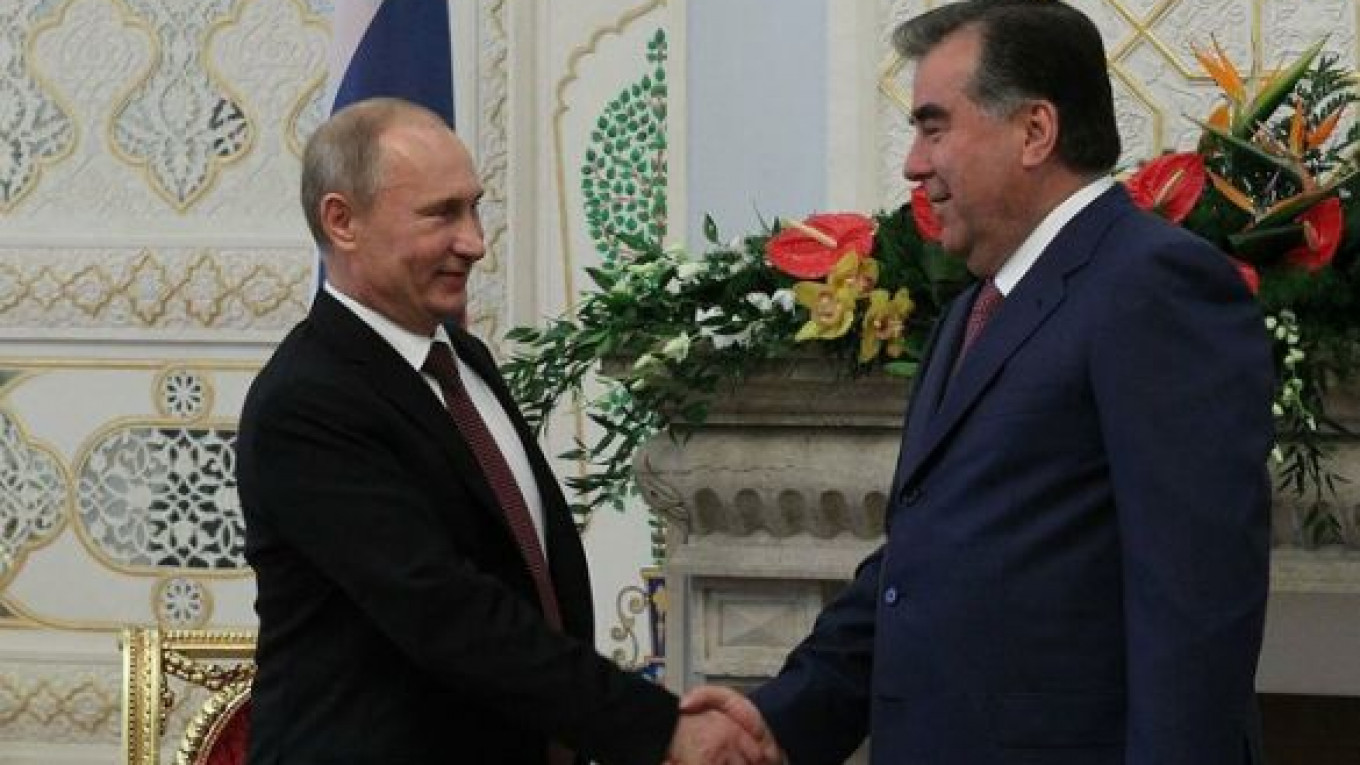President Vladimir Putin signed a deal Friday in Dushanbe that will allow Russia to keep a military base in Tajikistan until 2042.
Putin met with Tajik President Emomali Rakhmon on Friday on a trip to , where Putin was scheduled to tour the ase and to celebrate Rakhmon's 60th birthday with him.
Putin cancelled a trip to Pakistan previously scheduled for Thursday at the last minute and flew to Dushanbe, arriving late Thursday, according to the Kremlin website.
Presidential aide Yury Ushakov told Interfax that Putin's agenda in Dushanbe would include bilateral negotiations on issues including immigration, military cooperation and trade.
He said there would also be an official meal where Rakhmon's 60th birthday, which falls on Friday, would be celebrated.
To mark the occasion, Putin gave Rakhmon the latest model of Russian sniper rifle, Putin's spokesman Dmitry Peskov told journalists Friday, Interfax reported.
The president also joked with his Tajik counterpart that he would sign anything he wanted him to because it was his birthday.
"I always knew that you were a wise person and that you invited us on your birthday, enticed us, you could say. Because you can't refuse anything on someone's birthday, and we will have to sign anything you ask us to," Putin quipped.
Coincidentally, Putin's own 60th birthday is on Sunday.
Putin signed an agreement that was reportedly worked out last month with Tajik authorities to extend Russia's military presence in the country for 30 years in exchange for discounts on arms and military training.
On a trip to Kyrgyzstan last month, Putin said that having Russian military bases in Tajikistan and Kyrgyzstan was a major stabilizing force.
Putin was also set to visit the 201st base on his trip, Ushakov told Interfax.
A Message from The Moscow Times:
Dear readers,
We are facing unprecedented challenges. Russia's Prosecutor General's Office has designated The Moscow Times as an "undesirable" organization, criminalizing our work and putting our staff at risk of prosecution. This follows our earlier unjust labeling as a "foreign agent."
These actions are direct attempts to silence independent journalism in Russia. The authorities claim our work "discredits the decisions of the Russian leadership." We see things differently: we strive to provide accurate, unbiased reporting on Russia.
We, the journalists of The Moscow Times, refuse to be silenced. But to continue our work, we need your help.
Your support, no matter how small, makes a world of difference. If you can, please support us monthly starting from just $2. It's quick to set up, and every contribution makes a significant impact.
By supporting The Moscow Times, you're defending open, independent journalism in the face of repression. Thank you for standing with us.
Remind me later.






